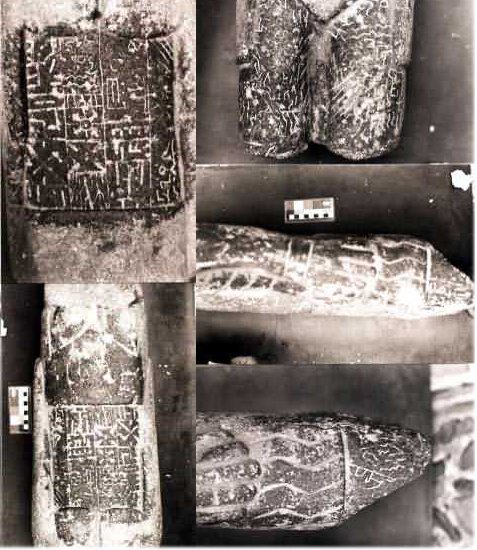Inscription On Pokotia Monolith Reveals Sumerians Visited Peru Thousands Of Years Ago
Ellen Lloyd - AncientPages.com - This time our quest for the hidden history of mankind takes us to Peru where we encounter an enigmatic inscription that offers evidence Sumerians crossed the ocean thousands of years ago and left traces of their civilization.
On the site of Pokotia that is located about 2 km from the city of stone Tiahuanaco, there is a monolith that was discovered around 1960. The Pokotia monolith is not very high. It measures only 170 cm, but it is intriguing nevertheless.
In 2002, several researchers analyzed the monolith and discovered the stone had inscriptions on the front and on the back.
Credit: Clyde Winters
It has been suggested that the monolith Pokotia may have been carved in a period prior to the flourishing of the civilization Pukara. According to the official linguistic term, Pukara comes from Quechua and means fortress or strategic place from where you can control a valley or the confluence of two rivers.
The place where the Pokotia monolith was discovered has been identified by some researchers as a sacred site or an oracle.
Is the Pokotia monolith a depiction of an ancient god of great importance perhaps?
American epigraphist Clyde Winters who deciphered the inscription on the Pokotia monolith concluded the writing is of proto-Sumerian origin. According to Winters in the monolith of Pokotia, there are various inscriptions (proto-Sumerian origin), but the most important ones are below the hands (which are resting on thighs), and in the dorsal part (in the back of the statue). The signs used to write the messages on the Pokotia monolith were non-liguture Proto-Sumerian symbols.
The inscription under the hand on the Pokotia figure is very interesting:
"The oracle Putaki conducts man to truth. (This) esteemed (and) precious oracle to sprout esteem, (now) witness (its) escape".
The Decipherment of the back inscription of Putaki is below. The writing on the back is written in Proto-Sumerian. The language used to read the inscriptions was Sumerian.
Credit: Clyde Winters
"Proclaim the establishment of character. The strong father (Putaki) to send forth the divination. Strong wisdom (in this) phenomenal area of the deity's power. Capture the speech (of the oracle). (The oracle is ) very strong to benefit (and) nourish the sprouting (of) character. Tell human being(s) (the oracle's) benefit. The oracle to open (up) much (benefit for all)."
"The ideal norm (is the) oracle (of Putaki). (This) oracle is (in) a phenomenal area of the deity's power". Distribute to all humanity (the divine decree). Snare a portion (of the) pure voice. (The oracle to) send forth gladness. Agitate the mouth (of the oracle), to send forth the divination. The diviner speaks good."
"The ideal norm (is this) oracle. (This) oracle (gives) divine decree. Distribute to all humanity (the divine decree). Snare a portion (of the) pure voice. (The oracle to) send forth gladness. Agitate the mouth (of the oracle), to send forth the divination. The diviner speaks good."
"The divine decree to become visible and glisten (from the oracle's own) mouth. Open up the divination. Agitate the oracle (to) send forth (now) wisdom and character. Open (the oracle) to distribute the divine decree (for all it is) lawful and righteous Good. Send forth the sustenance of the pure oracle. Stand upright (Oh oracle) to appear as a witness speaking purity. The oracle (of Putaki) to open (up and) send forth gladness and character".
"(Putaki) speaks (in) true measure, to send forth gladness (for all). Send forth nourish(ment). (The oracle Putaki is) the father of wisdom (and) benefit (for all). (The oracle) to become a visible witness of the diving decree and knowledge. (This) pure oracle speaks the divine decree (and) makes (it) a visible witness (of the deity's power)."
"The inscriptions on the back of the Pokotia statue define the role of the Putaki oracle in the community. It would appear that the people should recognize this oracle as a source of "truth" and glad tidings. Its additional role was to establish rigtheousness, wisdom and good character for the members of the community who might use this oracle to communicate with the gods.
Throughout this inscription, the Putaki oracle is called the "father". For example, in column 1, it was written that: "Proclaim the establishment of chracter.
The strong father (Putaki) to send forth the divination". And, in column 4, we discover that [Putaki is] the father of wisdom (and) benefit (for all).
This suggest that Putaki was recognized as the great ancestor of other oracles in the region.
This suggest that offspring of this oracle was probably situated in other parts of Peru-Bolivia, where the people went to divine the future, communicate with the gods or ancestors, or simply obtain blessing and glad tidings from the oracle, "Winters said.
Based on these inscriptions Winters, concluded that the monolith of Pokot was an oracle whose name was Putaki. Since the inscriptions are of proto-Sumerian origin it means Sumerians crossed the oceans and visited Peru in ancient times.
Written by - Ellen Lloyd - AncientPages.com
Copyright © AncientPages.com All rights reserved. This material may not be published, broadcast, rewritten or redistributed in whole or part without the express written permission of AncientPages.com
More From Ancient Pages
-
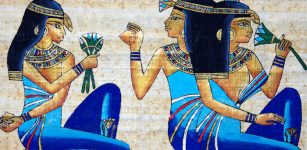 Ancient Scents Can Be Reconstructed With Help Of Modern Science – Researchers Say
Archaeology | Mar 28, 2022
Ancient Scents Can Be Reconstructed With Help Of Modern Science – Researchers Say
Archaeology | Mar 28, 2022 -
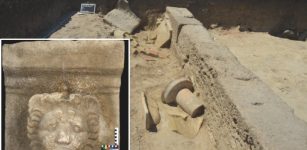 Outstanding Unfinished Ancient Marble Carving Of A Lion’s Head Found Near Selinunte, Sicily
Archaeology | Sep 2, 2023
Outstanding Unfinished Ancient Marble Carving Of A Lion’s Head Found Near Selinunte, Sicily
Archaeology | Sep 2, 2023 -
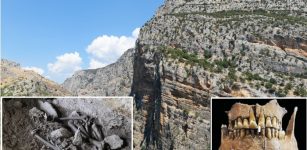 Unusual Neolithic Burial From Grotta Di Pietra Sant’ Angelo Puzzles Archaeologists
Featured Stories | Jan 15, 2024
Unusual Neolithic Burial From Grotta Di Pietra Sant’ Angelo Puzzles Archaeologists
Featured Stories | Jan 15, 2024 -
![Photo taken on Dec 20, 2015 shows hoof-shaped gold ware unearthed from the main coffin in the Haihunhou (Marquis of Haihun) cemetery, East China's Jiangxi province. [Photo/Xinhua]](https://www.ancientpages.com/wp-content/uploads/2015/12/MarquisofHaihuntomb1-307x150.jpg) Does A 2,000-Year-Old Tomb Belong To Marquis of Haihun? – Search For His Seal Continues
Archaeology | Dec 25, 2015
Does A 2,000-Year-Old Tomb Belong To Marquis of Haihun? – Search For His Seal Continues
Archaeology | Dec 25, 2015 -
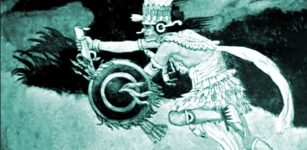 Tezcatlipoca: Enigmatic Aztec God Who Looked Inside People’s Hearts And Observed Their Deeds On Earth
Aztec Mythology | Jul 22, 2021
Tezcatlipoca: Enigmatic Aztec God Who Looked Inside People’s Hearts And Observed Their Deeds On Earth
Aztec Mythology | Jul 22, 2021 -
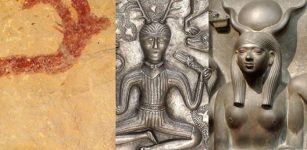 Mystery Of The Horned Serpent In North America, Mesopotamia, Egypt And Europe
Egyptian Mythology | Dec 7, 2017
Mystery Of The Horned Serpent In North America, Mesopotamia, Egypt And Europe
Egyptian Mythology | Dec 7, 2017 -
 Ancient Secrets Of Karelia: Mysterious Vottovaara Mountain Was Sacred To The Sami People
Featured Stories | Apr 5, 2017
Ancient Secrets Of Karelia: Mysterious Vottovaara Mountain Was Sacred To The Sami People
Featured Stories | Apr 5, 2017 -
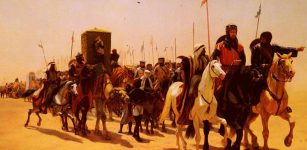 On This Day In History: Richard The Lionheart Ascended The British Throne – On July 6, 1189
News | Jul 6, 2016
On This Day In History: Richard The Lionheart Ascended The British Throne – On July 6, 1189
News | Jul 6, 2016 -
 Intriguing Study Reveals Genes And Languages Aren’t Always Found Together – What Does This Say About Our Ancestors?
Archaeology | Nov 22, 2022
Intriguing Study Reveals Genes And Languages Aren’t Always Found Together – What Does This Say About Our Ancestors?
Archaeology | Nov 22, 2022 -
 What Were The Most Important Inca Laws That All Citizens Had To Respect?
Ancient History Facts | Aug 16, 2017
What Were The Most Important Inca Laws That All Citizens Had To Respect?
Ancient History Facts | Aug 16, 2017 -
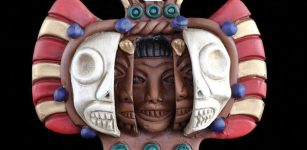 Supay: God Of Death And Underworld And Ruler Over Race Of Demons According To Inca Beliefs
Featured Stories | Jun 7, 2020
Supay: God Of Death And Underworld And Ruler Over Race Of Demons According To Inca Beliefs
Featured Stories | Jun 7, 2020 -
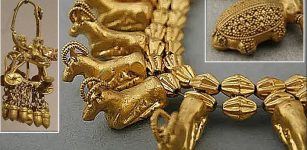 Gold Treasures From The Land Of Ancient Colchian Culture In Georgia
Featured Stories | Dec 19, 2023
Gold Treasures From The Land Of Ancient Colchian Culture In Georgia
Featured Stories | Dec 19, 2023 -
 Mystery Of The Neanderthals – Search For Traces Of Neanderthals’ Lives And Hints Of Their Demise
Archaeology | Sep 26, 2022
Mystery Of The Neanderthals – Search For Traces Of Neanderthals’ Lives And Hints Of Their Demise
Archaeology | Sep 26, 2022 -
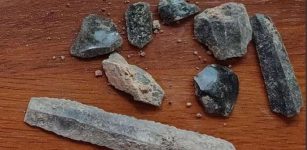 Tracking Prehistoric Relations With AI From The Middle Stone Age To Antiquity
Archaeology | Jul 14, 2023
Tracking Prehistoric Relations With AI From The Middle Stone Age To Antiquity
Archaeology | Jul 14, 2023 -
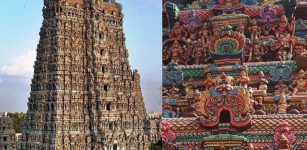 Meenakshi Temple Of Madurai Is Among Most Powerful Sacred Sites For Hindu People
Featured Stories | Apr 29, 2021
Meenakshi Temple Of Madurai Is Among Most Powerful Sacred Sites For Hindu People
Featured Stories | Apr 29, 2021 -
 Archaeologists unearthed artifacts in a 3,700 year-old mine factory
Artifacts | Aug 22, 2015
Archaeologists unearthed artifacts in a 3,700 year-old mine factory
Artifacts | Aug 22, 2015 -
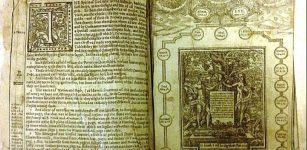 On This Day In History: The King James Bible Is Published For The First Time In London – On May 2, 1611
News | May 2, 2016
On This Day In History: The King James Bible Is Published For The First Time In London – On May 2, 1611
News | May 2, 2016 -
 Munkholmen: Island With Intriguing Yet Dark And Scary History
Featured Stories | Aug 25, 2023
Munkholmen: Island With Intriguing Yet Dark And Scary History
Featured Stories | Aug 25, 2023 -
 Another Franklin Expedition Crew Member Identified
Archaeology | Sep 26, 2024
Another Franklin Expedition Crew Member Identified
Archaeology | Sep 26, 2024 -
 Only One In Four Western Roman Emperors Died Of Natural Causes
Archaeology | Oct 15, 2021
Only One In Four Western Roman Emperors Died Of Natural Causes
Archaeology | Oct 15, 2021


